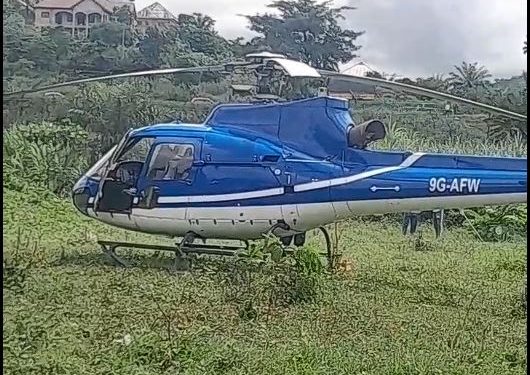The Executive Director of the Bureau of Public Safety (BPS), Dr. Davidson Nana Yaw Akwada, has warned that Ghana’s transport systems are crippled by “deep and unresolved safety flaws” that require immediate and comprehensive reform.
His remarks follow the August 6 Z-9 helicopter crash that killed eight senior officials, a tragedy he says reflects a wider, recurring pattern of safety failures across the nation’s air, rail, and road networks.
According to Dr. Akwada, while each transport incident has its own circumstances, they collectively point to weak infrastructure, human error, and regulatory oversight that has failed to keep pace with increasing risks.
“Grief alone is not enough,” he stressed. “It should trigger a hard look at the rules we follow, the way we maintain our fleets, and the decisions made before take-off.”
BPS Data Shows Stark Trends
Between 2017 and 2024, more than 90% of transport-related deaths in Ghana occurred on the roads, BPS data reveals. The most severe crashes often happen at night, between 10 p.m. and 6 a.m., frequently involving long-distance buses on poorly maintained roads. Driver fatigue, speeding, and overloading remain consistent causes.
The rail sector’s recent decline in accidents, Dr. Akwada noted, is not due to improved safety but to a “barely functioning” network, meaning risks remain hidden. Aviation, while historically safer, now faces a “critical test” following the recent crash. He expressed “strong exception” to the Ghana Armed Forces leading the crash investigation instead of an independent Accident Investigation Bureau (AIB) in line with ICAO Annex 13 standards, warning this could compromise transparency and learning.
The Way Forward: Multi-Agency Action
Dr. Akwada outlined a multi-pronged strategy for reform:
• Independent and Transparent Investigations: Fully fund and protect accident investigation bodies for air, rail, and road transport; publish reports in full for civil aviation incidents and redacted versions for security-related cases.
• Modernised Infrastructure: Upgrade rail systems and redesign high-risk roads such as Kintampo–Techiman and Accra–Kumasi with dual carriageways, rumble strips, and clear signage.
• Operator Training: Make recurrent training mandatory for pilots, drivers, and engineers, focusing on fatigue management and hazard awareness; tie license renewals to actual safety records.
• Strict Enforcement: Impose real penalties for overloading, speeding, and maintenance neglect; conduct mandatory safety audits and ground failing operators.
• Enhanced Emergency Response: Strengthen regional response capacity to make the “golden hour” a reality; equip rural hospitals for mass-casualty incidents.
“Every crash is a moment of grief, but it’s also a chance to ensure the same thing never happens again,” Dr. Akwada said. “When we stop at condolences and skip the uncomfortable work of public investigations and reform, we guarantee the same headlines will return and they’ll read just as painfully.”














